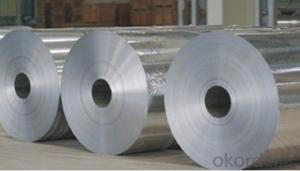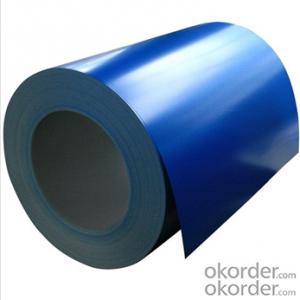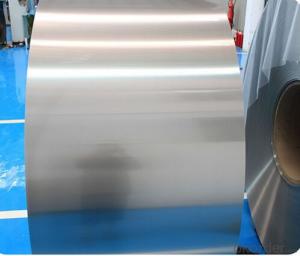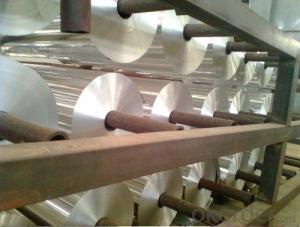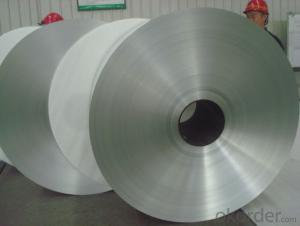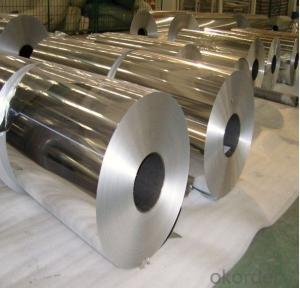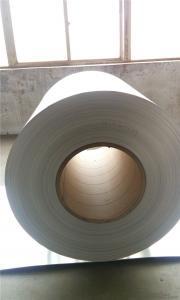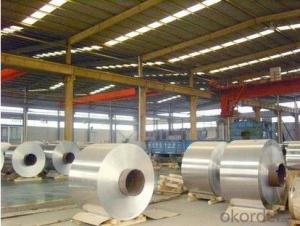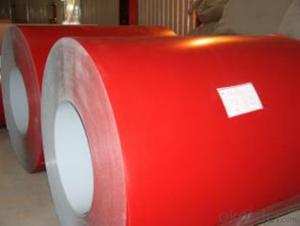ASTM Grade 3003 Aluminum Strips Belt for Solar - Aluminum Coil in Pensacola
- Loading Port:
- Shanghai
- Payment Terms:
- TT OR LC
- Min Order Qty:
- 5 m.t.
- Supply Capability:
- 500 m.t./month
OKorder Service Pledge
OKorder Financial Service
You Might Also Like
Specification
ASTM Grade 3003 Aluminum Strips Belt For Solar
aluminum coil specifications:
1) Alloy :1050, 1060,1100, 3003 3004 3105 3A21 5005 5052 etc
2) Temper: O/H12/H14/H1/H18/H32/H34/H36/H38//H111/H112/H116/H321/T6/T651/T3/T351 etc
3) Thickness: 0.1mm to 6mm
4) Width:20mm to 3300mm
5)Coil weight: 100kgs to 6 tons depends on actual requirement
6)Core material: Aluminum or paper
7)Coil Inner diameter: 75mm, 150mm, 200mm, 300mm, 405mm, 505mm or as required
8) Protective film can be added
item | 3003 Aluminum coil | |
Standard | GB/T3190-2008,GB/T3880-2006,ASTM B209,JIS H4000-2006,etc | |
Material | 1060,1050,1100 3003,3103,3004,3005,3105 5052, 5454,5754 | |
Size | Thickness | 0.5mm-3.5mm |
Width | 800-1500mm | |
Weight/Roll | About 1.5MT/3MT | |
Quality control | Mill Test Certificate is supplied with shipment, Third Part Inspection is acceptable. | |
Surface | Bright, polished, hair line, brush, checkered, embossed, etc | |
Trade terms | Price term | ,FOB, CNF, CIF, etc |
Payment Term | TT,L/C | |
MOQ | 2MT | |
20 GP Capacity | About 20-25MT | |
Delivery time | 1.The products will delivery immediately after receiving the payment. 2.According to the order quantity, prompt delivery. | |
Export to | Ireland,Singapore,Indonesia,Ukraine,Spain,Canada,USA,Brazil,Thailand,Korea,Iran,India,Egypt,Kuwait, Oman,Viet Nam, South Africa, Dubai, Russia, etc | |
Package | Stick blue film→plastic film→waterproof paper→1~2 tons on a export standard pallet(corner protection) | |
Application | 1)Further making utensil.2)Solar reflective film3)The appearance of the building4)Interior decorating:ceilings,walls,etc.5)Furniture cabinets6)Elevator decoraction7)Signs,nameplate,bags making.8)Decoration inside and outside the car9)Household appliances:refrigerators,microwave ovens,audio equipment,etc.10)The consumer electronics:mobile phones,digital cameras,MP3,etc. | |
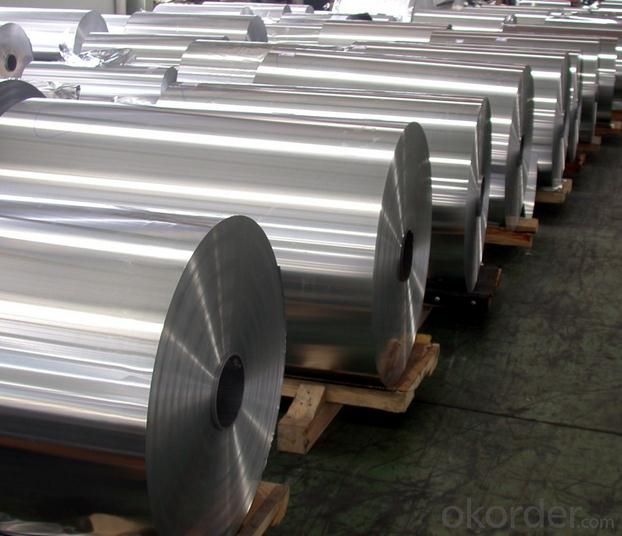
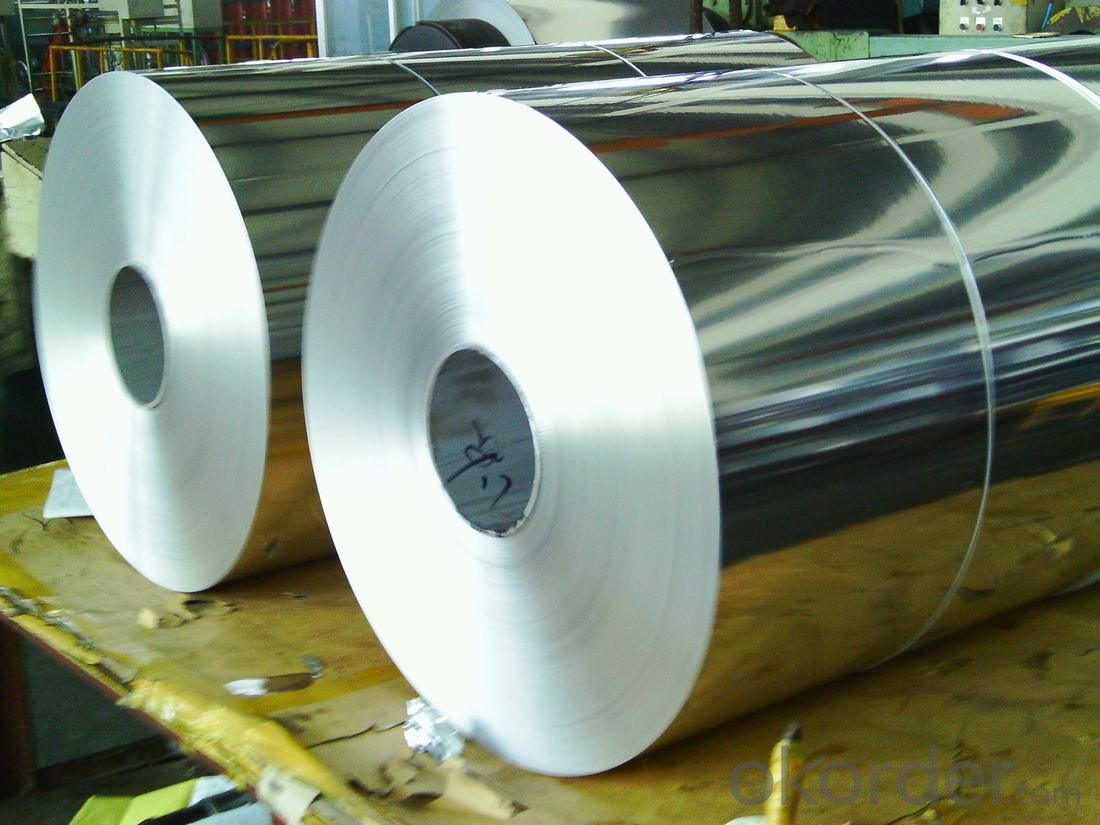
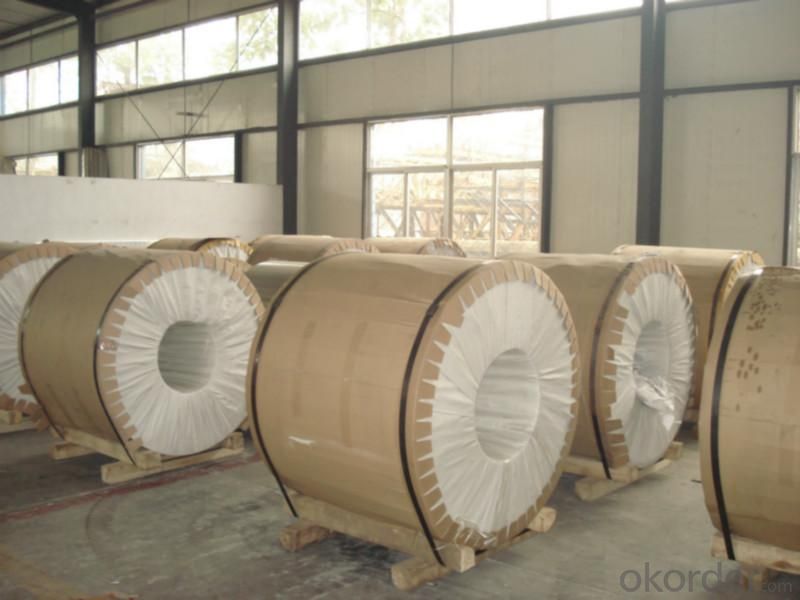
- Q: How do aluminum coils contribute to the thermal conductivity of products?
- Aluminum coils contribute to the thermal conductivity of products by efficiently transferring heat. Due to their high thermal conductivity, aluminum coils can quickly absorb and distribute heat, allowing for effective thermal management in various applications such as HVAC systems, refrigeration units, and heat exchangers.
- Q: Can aluminum coils be used in cryogenic applications?
- Yes, aluminum coils can be used in cryogenic applications. Aluminum is known for its excellent thermal conductivity, which makes it a suitable material for transferring heat in low-temperature environments. Additionally, aluminum has a low coefficient of thermal expansion, meaning it can withstand the extreme temperature changes that occur in cryogenic applications without experiencing significant dimensional changes. However, it is worth noting that aluminum coils may need to be specially designed or treated to ensure they can withstand the extremely low temperatures and avoid any potential issues such as brittleness or embrittlement.
- Q: Can aluminum coils be fabricated or machined?
- Aluminum coils have the ability to undergo fabrication or machining. They are commonly utilized in heating, ventilation, and air conditioning (HVAC) systems, automotive radiators, and electrical transformers. These coils can be tailored and machined according to specific requirements and dimensions. The fabrication of aluminum coils involves procedures such as cutting, bending, and welding in order to achieve the desired shape and size. This allows for customization and adaptation to various applications. Conversely, machining involves the removal of material from the aluminum coil through the use of cutting tools such as lathes, mills, or CNC machines. This process is employed to attain precise dimensions, smooth finishes, and intricate designs. In summary, aluminum coils possess versatility and can be fabricated or machined to accommodate diverse needs. The flexibility of aluminum as a material renders it a favored choice in numerous industries, offering durability, lightweight properties, and exceptional thermal conductivity.
- Q: This question asks for an explanation of the various materials used for coating aluminum coils.
- <p>Aluminum coil coating materials can be categorized into several types, including: 1. Organic coatings, such as polyester, acrylic, and polyvinylidene fluoride (PVDF), which offer good weather resistance and color stability. 2. Inorganic coatings, like fluoropolymers, which provide exceptional chemical resistance and high-temperature stability. 3. Metal coatings, such as zinc or other metals, used for enhanced corrosion resistance. 4. Ceramic coatings, which are known for their high durability and resistance to heat and chemicals. 5. Laminates, which combine multiple materials for specific performance characteristics. These coatings are chosen based on the intended application of the aluminum coil, such as in construction, automotive, or packaging industries.</p>
- Q: This question asks for a comparison between aluminum coil and other types of wire, highlighting their differences.
- <p>Aluminum coil is a type of wire made from aluminum, known for its lightweight, high conductivity, and corrosion resistance. It's commonly used in electrical applications, construction, and packaging. Other types of wire, such as copper wire, have different properties. Copper, for instance, has higher conductivity than aluminum but is heavier and more expensive. Steel wire is stronger and more durable but less conductive and prone to rust. The choice between aluminum coil and other wires depends on the specific requirements of strength, conductivity, cost, and environmental resistance for the application in question.</p>
- Q: We are shopping for a new LQ trailer. We are looking at several different brands and noticed that some have aluminum skin on an aluminum frame, and others have aluminum skin on a steel frame. Other than the obvious differences in weight and cost, what are other benefits/disadvantages of each? Thanks
- I swear by an all aluminum trailer! Aluminum over steel next, and I hope I never own another steel trailer! I have had trailers for, lets see, 40 years now, and just bought my first aluminum one about 6 years ago. It is 14 years old and except for a few bumps that WE put in it (the same amount of bump would have dented a steel trailer too) it is in GREAT shape. A 10+ year old steel trailer shows a LOT of wear, and has to be sanded and painted often.
- Q: Can aluminum coils, which are typically used for industrial purposes, be utilized for baking pizza?
- <p>Aluminum coils, commonly used in industrial applications, are not recommended for baking pizza. While aluminum is a good conductor of heat and can be used in baking, aluminum coils are often too thick and not designed for direct contact with food. They may also contain coatings or treatments unsuitable for food. Instead, use aluminum foil or a pizza stone designed for baking to ensure food safety and even heat distribution.</p>
- Q: Can aluminum coils be welded or soldered?
- Yes, aluminum coils can be welded or soldered.
- Q: So i like eating frozen foods like wings or bagel bites and i cook them in my toaster oven with aluminum foil under them on top of the tray. I heard using aluminum is bad for you and can get you diseases or illnesses. Is this true and should i stop using aluminum foil? i eat these frozen foods maybe 3-4 times a week
- No, aluminum foil and aluminum cookware are safe to cook with. Back in the 1930s to as late as the 1960s, a certain screwball religious cult sometimes published articles to fluff out their newsletters and proselytizing magazines about the supposed dangers of aluminum cookware. Their source was anecdotes from one obsessive quack, not any replicable scientific studies.
- Q: How are aluminum coils coated or treated for specific applications?
- Aluminum coils are coated or treated for specific applications through various processes such as painting, anodizing, and thermal spraying. These treatments enhance the coil's durability, corrosion resistance, and aesthetic appeal. For example, painting involves applying a protective coating of paint to the aluminum surface, while anodizing involves creating a layer of oxide on the surface to improve resistance to wear and corrosion. Thermal spraying is another method where a coating material is sprayed onto the surface using heat, providing additional protection and specific functional properties.
Send your message to us
ASTM Grade 3003 Aluminum Strips Belt for Solar - Aluminum Coil in Pensacola
- Loading Port:
- Shanghai
- Payment Terms:
- TT OR LC
- Min Order Qty:
- 5 m.t.
- Supply Capability:
- 500 m.t./month
OKorder Service Pledge
OKorder Financial Service
Similar products
Hot products
Hot Searches
Related keywords
